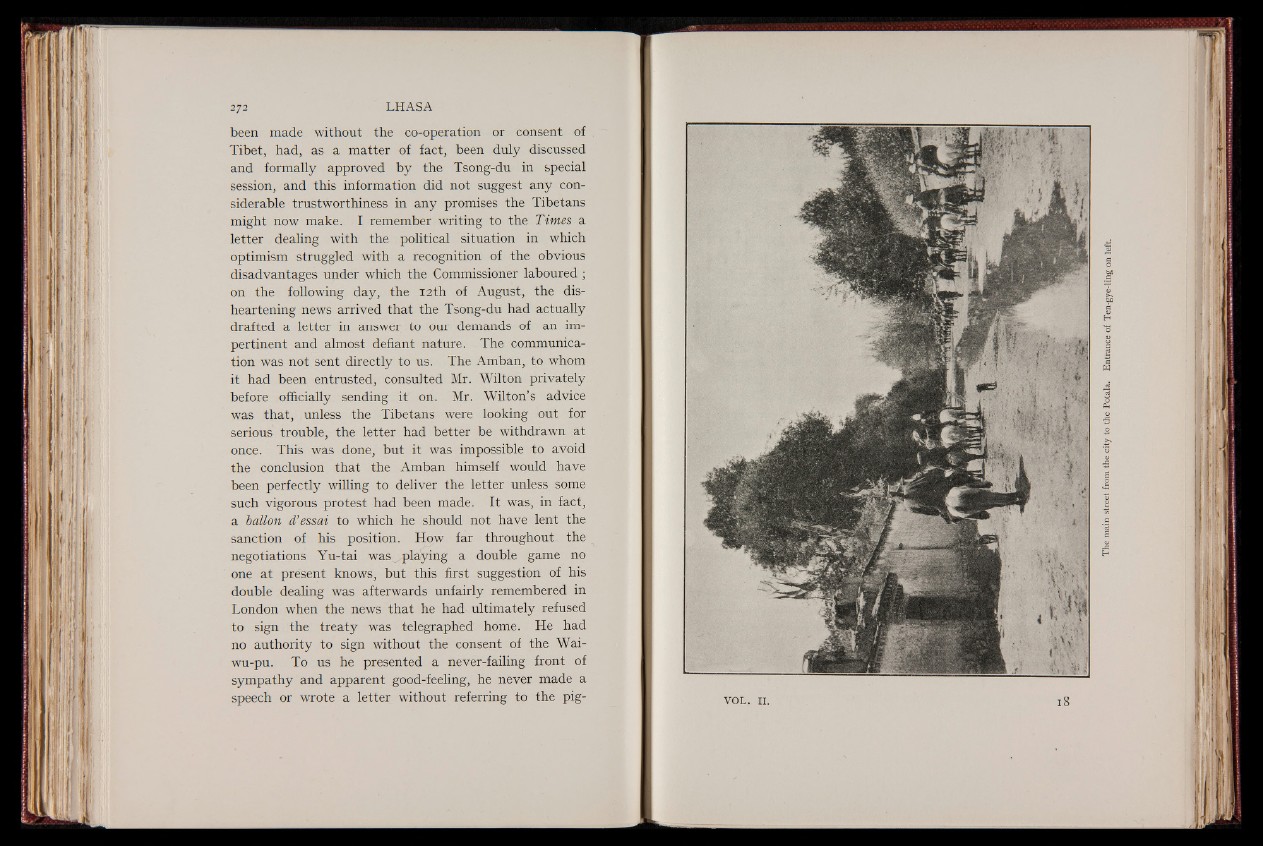
been made without the co-operation or consent of
Tibet, had, as a matter of fact, been duly discussed
and formally approved by the Tsong-du in special
session, and this information did not suggest any considerable
trustworthiness in any promises the Tibetans
might now make. I remember writing to the Times a
letter dealing with the political situation in which
optimism struggled with a recognition of the obvious
disadvantages under which the Commissioner laboured ;
on the following day, the 12th of August, the disheartening
news arrived that the Tsong-du had actually
drafted a letter in answer to our demands of an impertinent
and almost defiant nature. The communication
was not sent directly to us. The Amban, to whom
it had been entrusted, consulted Mr. Wilton privately
before officially sending it on. Mr. Wilton’s advice
was that, unless the Tibetans were looking out for
serious trouble, the letter had better be withdrawn at
once. This was done, but it was impossible to avoid
the conclusion that the Amban himself would have
been perfectly willing to deliver the letter unless some
such vigorous protest had been made. It was, in fact,
a ballon d’essai to which he should not have lent the
sanction of his position. How far throughout the
negotiations Yu-tai was playing a double game no
one at present knows, but this first suggestion of his
double dealing was afterwards unfairly remembered in
London when the news that he had ultimately refused
to sign the treaty was telegraphed home. He had
no authority to sign without the consent of the Wai-
wu-pu. To us he presented a never-failing front of
sympathy and apparent good-feeling, he never made a
speech or wrote a letter without referring to the pig